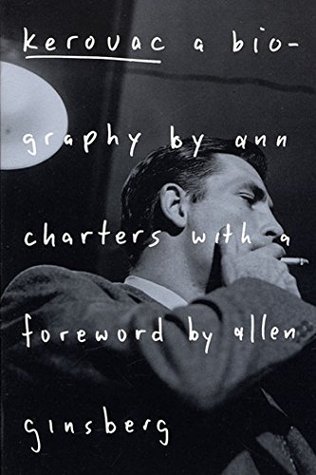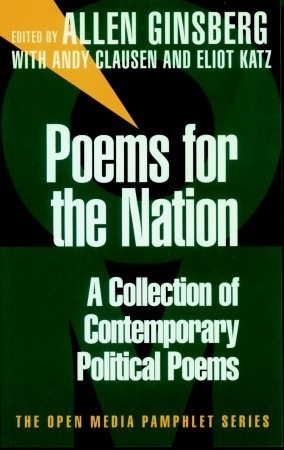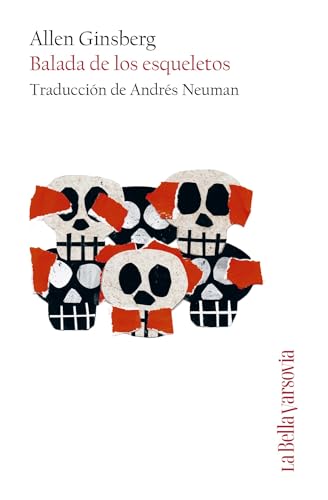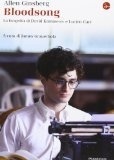
Long incantatory works and books of known American poet Irwin Allen Ginsberg, a leading figure of the Beat Generation, include Howl (1956) and Kaddish (1961). Naomi Ginsberg bore Irwin Allen Ginsberg, a son, to Louis Ginsberg, a Jewish member of the New York literary counterculture of the 1920s. They reared Ginsberg among several progressive political perspectives. Mental health of Naomi Ginsberg, a nudist, who supported the Communist party, concerned people throughout the childhood of the poet. According to biographer Barry Miles, "Naomi's illness gave Allen an enormous empathy and tolerance for madness, neurosis, and psychosis." As an adolescent, Ginsberg savored Walt Whitman, though in 1939, when Ginsberg graduated high school, he considered Edgar Allan Poe his favorite poet. Eager to follow a childhood hero who had received a scholarship to Columbia University, Ginsberg made a vow that if he got into the school he would devote his life to helping the working class, a cause he took seriously over the course of the next several years. He was admitted to Columbia University, and as a student there in the 1940s, he began close friendships with William S. Burroughs, Neal Cassady, and Jack Kerouac, all of whom later became leading figures of the Beat movement. The group led Ginsberg to a "New Vision," which he defined in his journal: "Since art is merely and ultimately self-expressive, we conclude that the fullest art, the most individual, uninfluenced, unrepressed, uninhibited expression of art is true expression and the true art." Around this time, Ginsberg also had what he referred to as his "Blake vision," an auditory hallucination of William Blake reading his poems "Ah Sunflower," "The Sick Rose," and "Little Girl Lost." Ginsberg noted the occurrence several times as a pivotal moment for him in his comprehension of the universe, affecting fundamental beliefs about his life and his work. While Ginsberg claimed that no drugs were involved, he later stated that he used various drugs in an attempt to recapture the feelings inspired by the vision. In 1954, Ginsberg moved to San Francisco. His mentor, William Carlos Williams, introduced him to key figures in the San Francisco poetry scene, including Kenneth Rexroth. He also met Michael McClure, who handed off the duties of curating a reading for the newly-established "6" Gallery. With the help of Rexroth, the result was "The '6' Gallery Reading" which took place on October 7, 1955. The event has been hailed as the birth of the Beat Generation, in no small part because it was also the first public reading of Ginsberg's "Howl," a poem which garnered world-wide attention for him and the poets he associated with. Shortly after Howl and Other Poems was published in 1956 by City Lights Bookstore, it was banned for obscenity. The work overcame censorship trials, however, and became one of the most widely read poems of the century, translated into more than twenty-two languages. In the 1960s and 70s, Ginsberg studied under gurus and Zen masters. As the leading icon of the Beats, Ginsberg was involved in countless political activities, including protests against the Vietnam War, and he spoke openly about issues that concerned him, such as free speech and gay rights agendas. Ginsberg went on publish numerous collections of poetry, including Kaddish and Other Poems (1961), Planet News (1968), and The Fall of America: Poems of These States (1973), which won the National Book Award. In 1993, Ginsberg received the Chevalier des Arts et des Lettres (the Order of Arts and Letters) from the French Minister of Culture. He also co-founded and directed the Jack Kerouac School of Disembodied Poetics at the Naropa Institute in Colorado. In his later years, Ginsberg became a Distinguished Professor at Brooklyn College. On April 5, 1997, in New York City, he died from complications of hepatitis.
Series
Books

Journals
Mid-Fifties 1954-58
1995

South American Journals
January-July 1960
2019

Howl and Other Poems
1956
Wichita Vortex Sutra
1966
A Supermarket in California
1955

Poems
1983

Indian Journals
1970

Howl
1956

Non finché vivo
2017

Snapshot Poetics
A Photographic Memoir of the Beat Era
1993

Contemporary American Poetry
1962

Tous végétariens !
D'Ovide à Ginsberg, petit précis de la littérature végétarienne
2019

Allen Ginsberg CD Poetry Collection
2004

Collected Poems 1947-1997
2006

The Book of Martyrdom and Artifice
First Journals and Poems: 1937-1952
2006

Collected Poems, 1947-1980
1984

Death & Fame
Last Poems 1993-1997
2009

Journals
Early Fifties, Early Sixties
1977

T.V. Baby Poems
1960

Poems all over the place, mostly 'seventies
1978

Sunflower Sutra
2025

Mind Breaths
1977

Kerouac
A Biography
1973
Song & sunflower sutra
1969

White Shroud
Poems, 1980-1985
1986

Empty Mirror
1961

First Blues
Rags, Ballads & Harmonium Songs
1975

Ankor Wat. Photographs by Alexandra Lawrence.
1968

As Ever
The Collected Correspondence of Allen Ginsberg & Neal Cassady
1977

The Essential Ginsberg
2015

Allen Verbatim
1974

The Selected Letters of Allen Ginsberg and Gary Snyder
2008

Cosmopolitan Greetings
1994

Poems for the Nation
A Collection of Contemporary Political Poems
1999

Philip Glass
Hydrogen Jukebox
1965

Composed on the Tongue
1998

Gay Day
The Golden Age of the Christopher Street Parade 1974-1983
2006

Deliberate Prose
2013

Planet News
1968

Spontaneous Mind
Selected Interviews, 1958-1996
2001

Balada de los esqueletos
2025

Television Was a Baby Crawling Toward That Death Chamber
2018

Howl, Kaddish and Other Poems
1956

Straight Hearts' Delight
1980

Plutonian Ode and Other Poems
1981

The Best Minds of My Generation
A Literary History of the Beats
2004

Bloodsong
2013

Family Business
Selected Letters Between a Father and Son
2001

Illuminated Poems
1996

The Voice of the Poet
Allen Ginsberg
2004

Kaddish and Other Poems
1961

Iron Horse
1972

Photographs
1991

Wait Till I'm Dead
Uncollected Poems
2016

Selected Poems, 1947-1995
1996

The Letters of Allen Ginsberg
2008

The Fall of America
Poems of These States 1965-1971
1972

Reality Sandwiches
1963

Iron Curtain Journals
January-May 1965
2018

